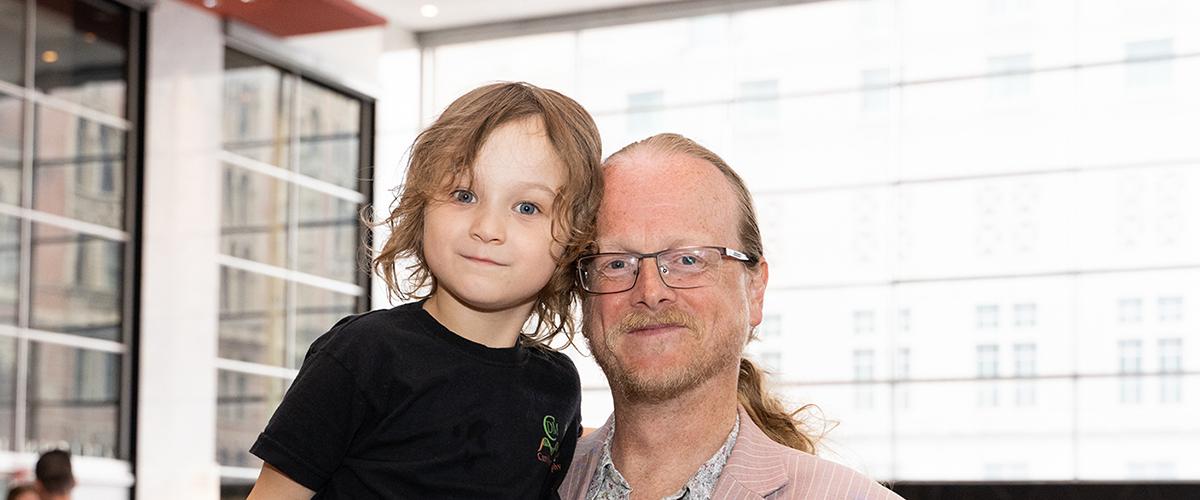
I’m Josh Crowder. I’m 21-years-old. I live in West Jordan Utah. I have myotonic muscular dystrophy Type 2 and I’ve had it since birth, which a lot of people find unbelievable.
It’s interesting how doctors were finally able to diagnose me. They initially thought I had some other kind of neuromuscular problem. They took blood samples and sent them off for testing. Somewhere along the way the test request got corrupted and they accidently ran the test for myotonic dystrophy and it came back positive. They couldn’t believe it.
They were completely shocked. So, they tested me again and it came back positive again. My doctors were just stunned -- how did the test request even get corrupted in the first place? This never happens. But it was really lucky for me and my family, because we were able to figure out what was wrong with me and my dad as well.
Now that I know that I have DM2, I finally have answers. I know better how to manage the issues that I’m going through, the fatigue, the muscle pain, and all of my other symptoms so that I have a better quality of life going forward.
Because I have this disability, I haven’t been able to do the types of activities that all my friends have been able to do, like sports, basketball, football, and those kinds of things. As a result, I’ve put my energy into other things.
I’ve been really interesting in computers and networking since I was young, and I have put all of my focus and energy into that, teaching myself, reading books, studying, and learning things on the Internet. My dad did that kind of work and it interested me, so he often brought me along with him to work. I picked things up as I went and started working full time in IT when I was 17 years old.
I recently worked for two years for the Navy as a contractor in California. Living on my own at 18 was pretty astounding. I got to focus all my energy on doing the things I can do and doing those things well, rather than focusing on and worrying about the things I can’t do.
As a family, we tend to be glass half-full type of people. We tend to see the positive instead of the negative. We understand this can be a debilitating disease, and we really sympathize with other people with Type 1 and Type 2 who struggle on a daily basis. We feel blessed.
We have had opportunities and we try to make the most of them. And we try to make opportunities for other people to get ahead, solve their own problems and enable them proactively manage their day-to-day lives. You can either chose to be a victim of your circumstances, or you can chose to do something about it and just get out there and do whatever you can on a daily basis.
Most days, you just don’t feel like getting up and going to work, but you just make yourself do it. And then, once you get over that little hurdle, you feel better about it, and it becomes more routine. You just get up and you just keep plugging along and doors open.

